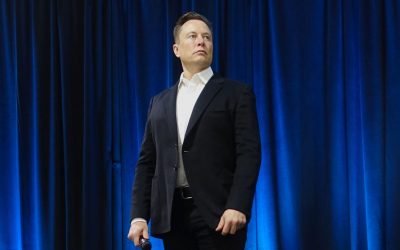When President Obama addresses the AFL-CIO on Sept. 15, he is expected to reiterate his support for the so-called Employee Free Choice Act. Congress is sharply divided over the proposed law, which would change the voting and arbitration procedures by which federal law forces companies to deal with labor unions.
Because the changes favor Big Labor, pro-union Democrats have been locked in a prolonged partisan squabble with their Republican opponents, and legislative compromise seems likely. But that’s really beside the point. Instead of quibbling over the methods by which unions can be forced upon unwilling employers and employees, Congress should be debating how to make the labor market truly free–free from government coercion.
For more than 70 years, Congress has maintained a statutory scheme that fastens coercive labor monopolies on individual companies. Starting with the Wagner Act in 1935, any union that wins a simple majority of employee votes becomes, by force of law, the exclusive bargaining agent for every single employee in that workplace. Such a victory slams the door shut on individuals who want to deal directly with the company, and leaves the union with a government-protected stranglehold on that firm’s labor supply. Predictably, these company-by-company labor monopolies have had the kind of deadening effects that come with all coercive monopolies.
Here’s how it works in practice: Each company is required by law to “bargain in good faith” with the union before making any important decision affecting jobs, wages, or working conditions. The union, in its legally privileged position, can just say no. When pressed, it can mobilize a crippling strike even if thousands of employees would rather keep working–because here, too, the outcome of an employee majority vote binds everyone. Usually, however, the mere threat of such a strike is enough to keep employers in line.
Now suppose a unionized firm wants to sell or close an unprofitable plant, or revamp a workflow to save expenses. At the “bargaining” table, the union’s predictable resistance is typically followed by one of two results. Either the union stands firm, in which case the unprofitable practices continue–or the union acquiesces, in exchange for higher wages and benefits, or a job for the shop steward’s son, or some other favor. This is not genuine bargaining but organized extortion, made possible by federal labor law.
So, while non-unionized competitors charge ahead with nimble, inventive, rapid responses to market challenges, unionized companies learn to slow down, “negotiate,” compromise, draw up rules–in other words, kowtow to the union. The inevitable results are bloated prices and declining product quality, as witness the domestic auto industry.
Detroit’s automakers, having suffered through painful work stoppages in the decades following World War II, discovered they could avoid labor unrest by caving in to the United Auto Workers’ demands. Over the years, meeting those demands gave rise to labor agreements as thick as telephone books, testaments to the stultifying regimentation that sapped Detroit’s competitive juices.
Because car manufacturing is complex and capital intensive, many years passed before competitors from Japan, Korea, and Germany could establish non-unionized plants in America’s southland. Now, however, the sun is setting on Detroit. GM and Chrysler are writhing in red ink, drained to the point of bankruptcy by costly union concessions, and Ford struggles to survive.
Not all labor unions wield UAW-level power, but most would like to. That’s why the Employee Free Choice Act would eliminate secret ballots in union elections and replace them with individually signed cards, open to union inspection. This would allow union organizers to more easily target, and intimidate, anti-union employees–and therefore win more often. The Act would also allow government arbitrators to impose initial “contract” terms if the union and employer disagree. That’s contrary to existing law, which allows for a no-contract impasse in that situation.
Congress should not only reject the transparent power grab known as the Employee Free Choice Act, it should start hacking at the root of the complex federal regime that denies free choice in bargaining. That means repealing the Wagner Act, so that labor law can recognize and protect the absolute right of companies and employees to deal with each other on an entirely voluntary basis.
Copyright Ayn Rand Institute. All rights reserved. That the Ayn Rand Institute (ARI) has granted permission to Capitalism Magazine to republish this article, does not mean ARI necessarily endorses or agrees with the other content on this website.




